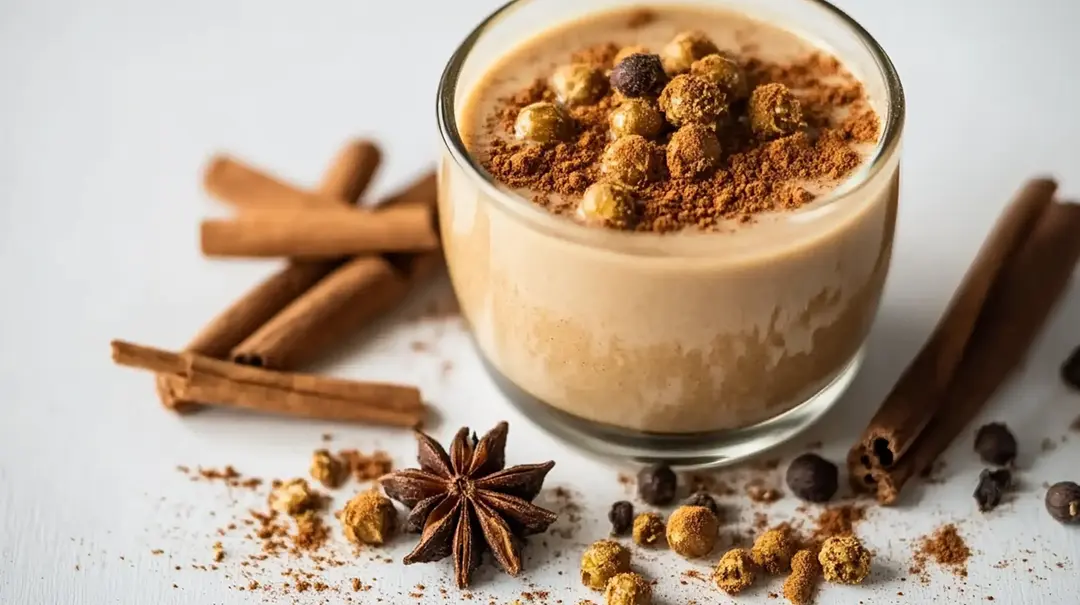
Boza, a traditional Turkish fermented drink, has deep roots in history, dating back to the Ottoman Empire. Enjoyed for centuries for its warmth and comfort, it is more than just a beverage – it symbolizes tradition, heritage, and community. With a resurgence in popularity due to its health benefits, Boza's origins, preparation, and cultural significance are explored in this article.
In the world of fermented beverages, Boza stands as a testament to the rich cultural tapestry of Turkey. This thick, slightly tangy drink has been a staple in Turkish households for centuries, enjoyed during long winter nights as both a source of warmth and comfort. With its deep roots in history, Boza is more than just a drink; it is a symbol of tradition, heritage, and community. In recent years, Boza has seen a resurgence, not only as a nostalgic beverage but also as a healthy choice in a modern diet. This article explores the origins, preparation, cultural significance, and health benefits of this fascinating fermented drink.
Boza’s story begins centuries ago, with its origins tracing back to the times of the Ottoman Empire and even earlier. It is believed that Boza was first brewed by the ancient Central Asian Turks, who migrated westward, bringing with them their culinary traditions. As they settled in the regions that now encompass modern Turkey, the Balkans, and parts of Central Asia, Boza became a staple beverage, adapting to the local ingredients and preferences of each region.
In the Ottoman Empire, Boza was more than just a drink; it was a social phenomenon. Boza shops, known as bozahane, dotted the streets of Istanbul and other major cities. These establishments were not just places to buy a drink; they were social hubs where people gathered to chat, relax, and enjoy each other’s company. Boza was particularly popular during the colder months, when its thick, hearty texture provided much-needed warmth and sustenance.
The drink’s popularity extended beyond Turkey’s borders, reaching into the Balkans and the Caucasus. Each region developed its own version of Boza, using local grains and methods, which contributed to the diversity of this fermented beverage. Despite these regional variations, the essence of Boza remained the same: a fermented, slightly alcoholic drink that was nutritious, filling, and deeply satisfying.

At its core, Boza is a simple drink made from just a few basic ingredients: millet, bulgur, or corn, water, and sugar. The choice of grain varies depending on the region and personal preference, with each type of grain imparting its own unique flavour and texture to the final product.
The process of making Boza begins with boiling the chosen grain until it is soft and fully cooked. Once the grain has been cooked, it is mashed or blended into a smooth mixture. This mixture is then diluted with water and allowed to ferment for several days. During the fermentation process, the natural sugars in the grain are converted into alcohol and lactic acid, giving Boza its characteristic tangy flavour and slight fizz.
The length of the fermentation process can vary, depending on how tangy or alcoholic the maker wants the Boza to be. A longer fermentation period will result in a stronger, tangier drink, while a shorter fermentation time will produce a milder, sweeter Boza. Once the fermentation is complete, the Boza is strained to remove any remaining solids, sweetened with sugar to taste, and then chilled before serving.
Boza’s thick, creamy texture is one of its most distinctive features. This texture is achieved through the combination of the cooked grain and the natural fermentation process, which thickens the liquid and gives it a slightly viscous consistency. The result is a drink that is both hearty and refreshing, perfect for sipping on a cold winter’s night.
While Boza’s popularity may have waned during the early 20th century, it has experienced a remarkable resurgence in recent years. Today, Boza is once again a beloved beverage in Turkey, enjoyed by people of all ages. This resurgence can be attributed to a growing interest in traditional foods and drinks, as well as a renewed appreciation for the health benefits of fermented products.
In modern Turkey, Boza is often enjoyed as a winter treat, served in cafes and homes across the country. Artisanal Boza makers have also emerged, offering high-quality, traditionally made Boza that harks back to the drink’s Ottoman roots. These Boza makers often use ancient recipes and methods, producing a drink that is as close as possible to the Boza enjoyed by generations past.
Boza has also found a place in popular culture. It is frequently referenced in Turkish literature, movies, and songs, where it is often associated with nostalgia, warmth, and the comforts of home. For many Turks, the taste of Boza evokes memories of childhood, family gatherings, and the simple pleasures of life.
This cultural renaissance has also led to the exploration of new flavours and variations of Boza. While traditional Boza remains the most popular, some modern versions incorporate different grains or add spices like cinnamon or vanilla for an added twist. These contemporary takes on Boza have helped introduce the drink to a new generation of Turks, as well as to people around the world who are discovering Boza for the first time.
One of the key reasons for Boza’s enduring popularity is its health benefits, particularly its probiotic content. Probiotics are live microorganisms that provide a range of health benefits when consumed, primarily by improving gut health. The fermentation process used to make Boza naturally produces these beneficial bacteria, making it a drink that not only tastes good but also supports overall well-being.
The probiotics found in Boza, like those in other fermented foods such as yogurt, kefir, and kombucha, help to maintain a healthy balance of gut flora. A healthy gut is essential for good digestion, a strong immune system, and even mental health, as the gut-brain connection is increasingly recognized by scientists.
In addition to its probiotic content, Boza is also rich in vitamins and minerals, particularly B vitamins, which are essential for energy production and overall health. The drink’s high carbohydrate content makes it an excellent source of energy, which is why it has traditionally been consumed by those needing an energy boost, such as soldiers, labourers, and athletes.
Boza is also popular among pregnant women and nursing mothers, who appreciate its nutritional value and the fact that it can help to boost milk production. The drink’s slightly sweet taste and thick consistency make it a comforting and satisfying choice during pregnancy and postpartum recovery.
While Boza is lower in alcohol than many other fermented drinks, it does contain a small amount, usually around 1%. This low alcohol content is generally considered safe for most people, including pregnant women, when consumed in moderation. However, it is always advisable to consult with a healthcare provider if there are any concerns.
Traditionally, Boza is served chilled in a glass, often with a sprinkle of cinnamon and a handful of roasted chickpeas on top. The cinnamon adds a warm, spicy note that complements the tangy flavour of the Boza, while the chickpeas provide a satisfying crunch that contrasts with the drink’s smooth texture.
Boza is typically enjoyed during the colder months, particularly in winter. Its thick, hearty consistency makes it the perfect drink for warming up on a chilly evening, and its sweet, tangy flavour is a delightful treat after a long day. In Turkey, it is not uncommon to see Boza sellers walking the streets in winter, calling out to passersby to offer them a warm glass of this traditional beverage.
In recent years, Boza has also been embraced by the health-conscious community, who appreciate its probiotic content and natural ingredients. Some modern variations of Boza incorporate different grains, such as quinoa or oats, or add spices like ginger or vanilla for a contemporary twist. These new takes on Boza offer a fresh perspective on this ancient drink, while still maintaining its core characteristics.
For those who are new to Boza, trying it for the first time can be an eye-opening experience. The drink’s unique combination of flavours and textures may be unfamiliar at first, but it quickly becomes an acquired taste that many people come to love. Whether enjoyed in its traditional form or with a modern twist, Boza is a drink that offers both taste and health benefits, making it a worthy addition to anyone’s diet.
Boza is much more than just a drink; it is a living link to Turkey’s rich cultural heritage. From its ancient origins to its modern resurgence, Boza has remained a beloved beverage that continues to bring people together, offering warmth, comfort, and a taste of tradition. Its health benefits, particularly its probiotic content, make it not only a delicious choice but also a beneficial one.
For those looking to explore new flavours or connect with Turkish culture, Boza offers a unique and rewarding experience. Whether made at home or purchased from a traditional Boza shop, this fermented gem is sure to leave a lasting impression. So why not take a sip of history and discover the delights of Boza for yourself?

At Med.kitchen, our passion lies in crafting exceptional culinary experiences through our online platform. We specialise in sharing a wealth of knowledge via articles, recipes, courses, and online mentoring, aiming to inspire both novice and seasoned chefs alike. Our focus has shifted from private dining to being an online source of gastronomic inspiration, allowing you to explore and refine your culinary skills from the comfort of your home..